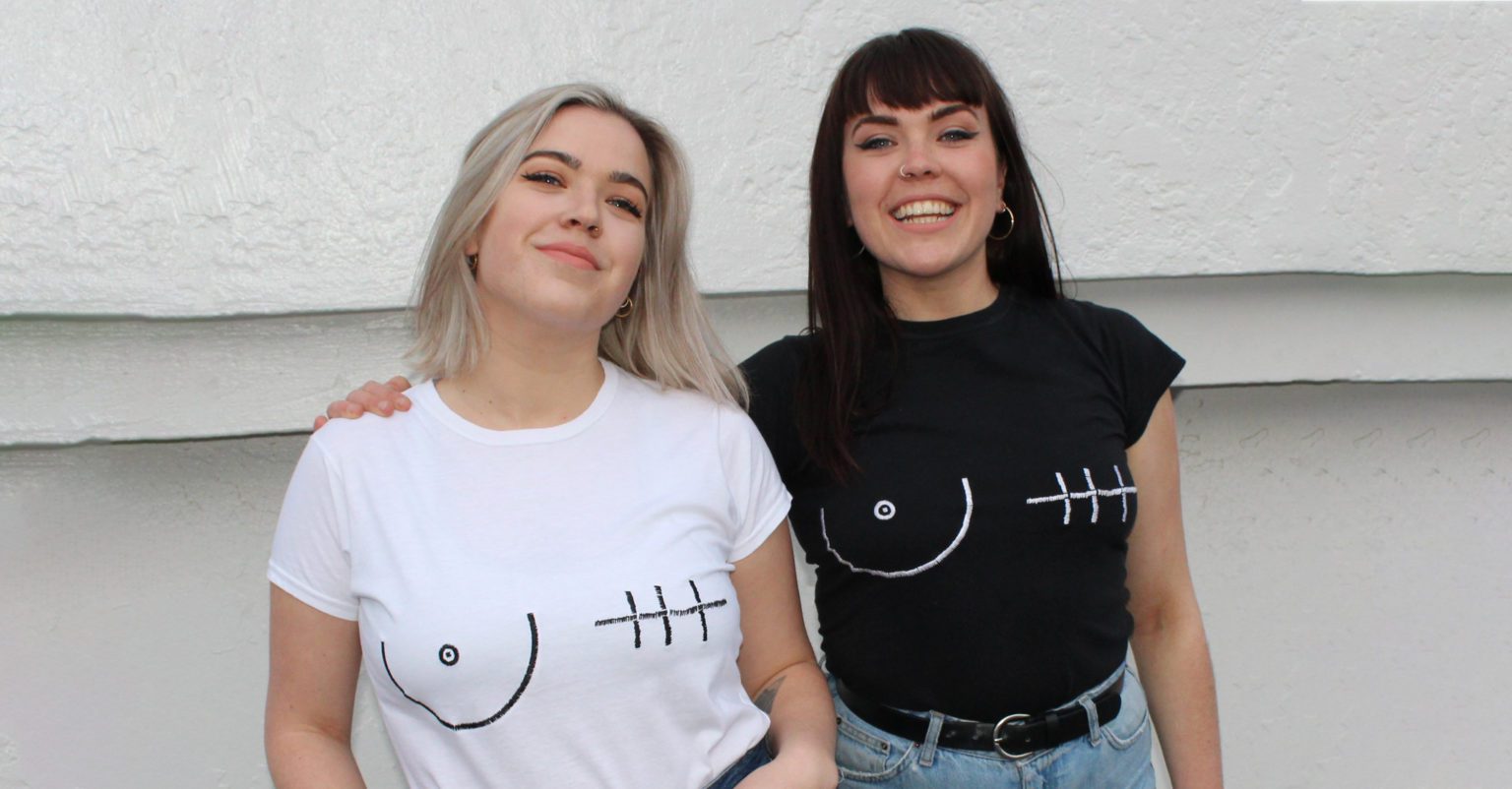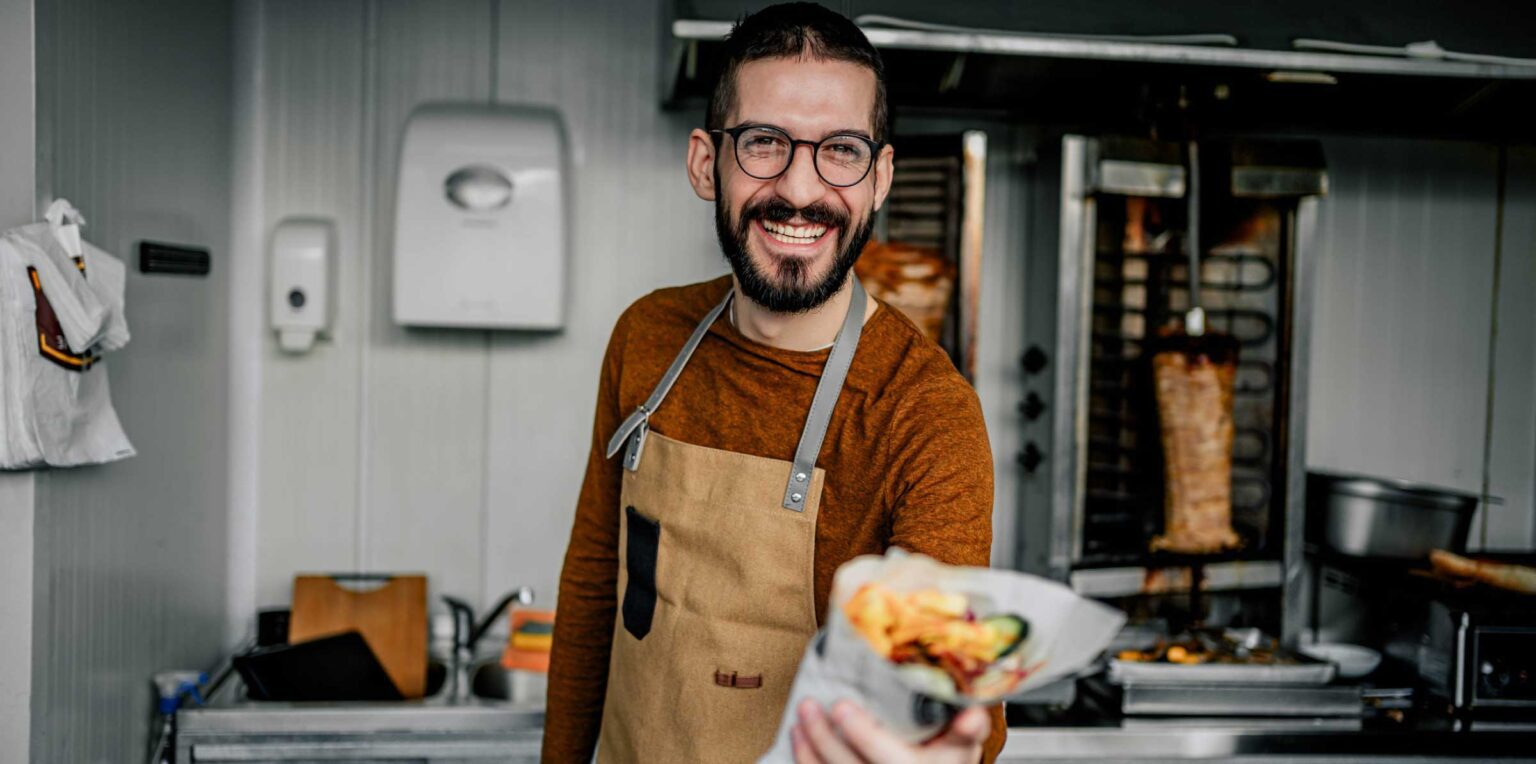We speak with the founders of a home-grown fashion social enterprise about why they do what they do, the role purpose plays in business decisions and the future of the organisation.
At a glance
- Nope Sisters Clothing is a fashion social enterprise that sells made-to-order embroidered t-shirts.
- The enterprise exists first and foremost for purpose – raising awareness of issues affecting the community such as breast cancer and sexual abuse.
- Founder Brittany Cosgrove says their customers play a critical role in spreading word of their message among the community.
- Brittany is now looking for someone to take over day-to-day operations of the business – someone who is similarly driven by a powerful purpose.
When Brittany Cosgrove’s mother was diagnosed with breast cancer, Brittany got straight to work.
Taking a t-shirt, she embroidered it with a design that modelled the scars of breast cancer surgery – it was a way of honouring her mother as a breast cancer survivor.
After posting an image of the shirt, nicknamed the ‘mastectotee’, on social media and attracting a huge amount of interest from their network of friends and family, Brittany and her sister Johanna saw potential to expand the concept into a social enterprise.
With that, Nope Sisters Clothing was born.
Driven by powerful purpose
Sometimes it’s not enough for businesses to promote a product or service with the sole aim of returning a profit. Positive social impact is now a core expectation of customers when they turn to businesses small and large alike.
A social enterprise takes this notion to heart and offers a business solution alongside social impact. Purpose is at the centre of its overarching strategy and day-to-day operations. The Wellington-based social enterprise Nope Sisters Clothing is no exception.
“We didn’t aim to make a successful, profitable business,” said Brittany, who runs Nope Sisters with support from Johanna. “We started as a charity. We created a business model that connected with others who shared our values.
“A made-to-measure clothing company was the only way to do this with no initial capital, and a purpose to do some good for ourselves and our charities.”
The business’s core product offering – made-to-order embroidered casual clothing – forms part of an informal awareness campaign for breast cancer, suicide, sexual abuse, period poverty and environmental justice.
Garments are sourced from a local organic clothing manufacturer, then embroidered in-house with a design from one of eight select charity partners. A quarter of each t-shirt sale goes to the corresponding organisation.
The profit share model has enabled Nope Sisters Clothing to donate more than $20,000 to its partners via a predominantly web-based business model.
“We primarily market and sell orders via online sales platforms, with the occasional local market stall,” says Brittany. “This is the only cost-effective way to create our products.
“With no physical store overheads to maintain, we have established a platform that originally began as a side hustle and now runs as a sole-trader business.”
Looking to grow your business? Download our eBook: 8 growth hack strategies for small business.
Engaging the community
A good business idea means little without engaged customers. Luckily, Brittany says customers have flocked to support Nope Sisters’ activities and played a critical role in promoting its message to the community.
“All our customers buy from us because they strongly connect with the messages behind our designs,” she says. “That starts an important conversation about a social issue, which in turn promotes or publicises the work of our supporting charities.
“It provides a sense of purpose for every wearer.”
Hiring staff aligned with purpose
Although Nope Sisters Clothing is a family business, its message has proven so noteworthy that Brittany and Johanna regularly field requests from people to volunteer.
“We used to have one part-time temporary employee, who came to us looking to help with administration duties solely because she fully believed in our purpose, or ‘kaupapa’. Being a survivor herself, she offered her services to help support sexual assault victims.”
The nature of the discussions among which they work, however, has taken its toll on the sisters, and the business is undergoing an exciting period of transition.
“I’m now looking for someone to take over the day-to-day business,” says Brittany. “This person must have the same strong values and purpose that drove the creation of our social enterprise.
The lesson for small business owners? An investment in purpose – whether that’s becoming a social enterprise, taking on pro bono clients, providing coffee for the local school’s fundraiser or sponsoring a local sports team – can pay off.
“Once, a woman saw a customer’s ‘mastectotee’ shirt and was encouraged to get a mammogram, which detected a cancerous lump she had no idea was even there,” Brittany says. “We feel amazing to be able to say that our simple t-shirt has probably saved lives.”
The payoff in purpose behind is not just in the warm and fuzzies – it’s in loyalty of both employees and customers.
A Prospa Small Business Loan provides up to $150,000 in as little as 24 hours to approved applicants, with fixed costs for the term of the loan. Find out more and apply now.




